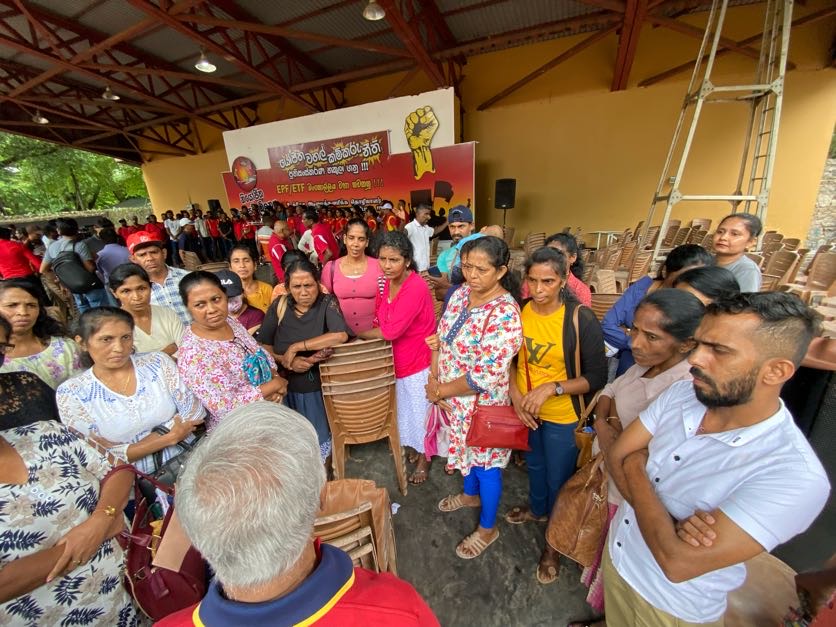
Garment workers in Hugo Boss supply chain fight union busting in context of Sri Lanka crisis
For almost three years, workers at Lanka Leather Fashion in Sri Lanka have been fighting for their right to unionise. The German-owned company was among the first to be established in the country’s free trade zone. It is Asia’s oldest and one of the region’s largest producers of high-end leather garments, boasting high-profile customers such as Hugo Boss.
But whilst the company glistens on the outside, its garment workers toil. Conditions at the Lanka Leather factory are harsh; workers report being pressured to meet unrealistic production targets, with insufficient bathroom breaks, and no free meal as mandated by law. Seeking to address these conditions, and with no internal mechanism to resolve labour issues, workers formed a union, aiming to join the Free Trade Zone and General Services Employees’ Union (FTZ&GSEU).
What has since unfolded is a textbook case of union-busting. From the outset, the union was met with hostility, with Lanka Leather management refusing to recognise the union and meet with its representatives. Since March 2021, several workers associated with the union have been dismissed in what appear to be attempts at obstruction and intimidation. These include the union organiser, treasurer, and president, among others, and as of today they have not been reinstated.
With demands falling on deaf ears, workers turned to Hugo Boss, a key customer of Lanka Leather. Workers in Sri Lanka have a right to unionise, and Hugo Boss has a duty to ensure that the workers in their supply chain are able to access that right. Several letters were exchanged between the union and Hugo Boss, which claims to take allegations of union-busting “very seriously” and prides itself on empowering women in the workforce. It is worth noting that over 70% of the workers at Lanka Leather are women, who struggle to make ends meet and are among some of the most vulnerable in Sri Lanka. Despite these claims, Hugo Boss has failed to take any meaningful action to urge Lanka Leather to recognise the union, relying on inadequate inspections of the factory to absolve itself of responsibility.
But the workers have refused to back down. The union filed a complaint against Hugo Boss to the Partnership for Sustainable Textiles, together with the German Clean Clothes Campaign (Kampagne für saubere Kleidung). The Partnership for Sustainable Textiles – of which Hugo Boss is a member - is an alliance of companies, trade unions, NGOs and representatives from the German government, set up with the aim of improving conditions in the textile industry. Together with FTZ&GSEU we are calling for the union to be recognised and for the dismissed workers to be reinstated in their roles.
The situation at Lanka Leather is extremely troubling, particularly when viewed through the lens of the financial and political crisis in Sri Lanka. Garment workers are bearing the brunt, with high inflation and currency devaluation pushing many into hunger and destitution. On top of this crisis, the Sri Lankan government has sought to change the labour law as well as measures targeting workers' pension funds, placing garment workers in an even more precarious position. As Anton Marcus, Joint Secretary of the FTZ&GSEU, says: "The government's proposals and process for revising the labour law violate international standards for decent work and threaten to trigger a race to the bottom on workers' rights."
Large-scale amendments such as these should be rooted in a thorough consultation process with workers and their elected trade union representatives. However, in June 2023, four unions, including the FTZ&GSEU, were illegally removed from the National Labour Advisory Council, the body responsible for deciding on amendments. After the unions initiated a court case on the matter, FTZ&GSEU has been readmitted to the council. However, this is a temporary measure until the final judgement is declared.
The CCC networks stands by the workers at Lanka Leather, and we hope our supporters will too. To follow developments in the campaign please visit: https://www.payyourworkers.org/lankaleather.